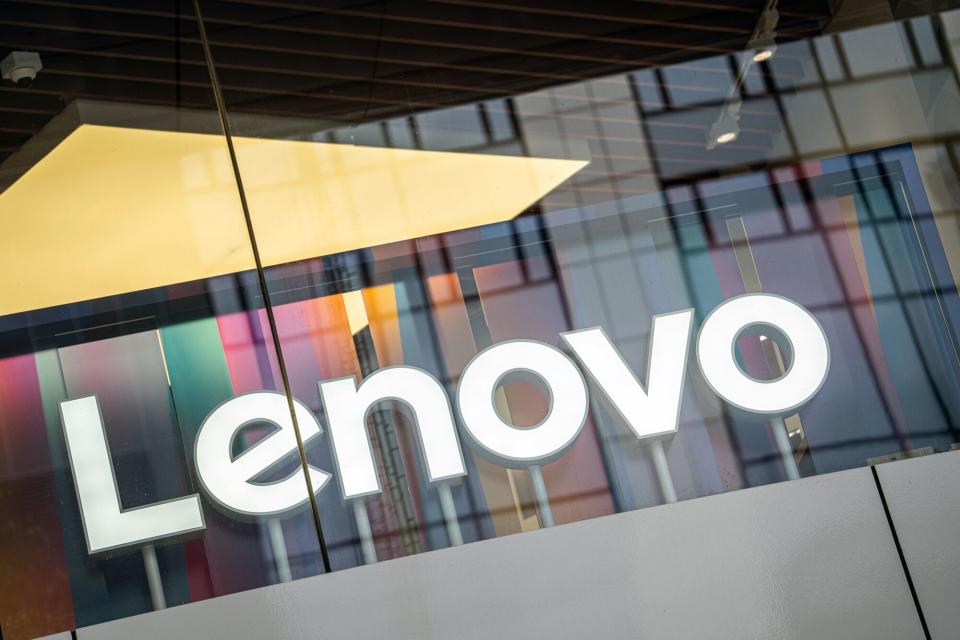Lenovo Beats Estimates With AI Helping PC Sales Rebound

(Bloomberg) -- Lenovo Group Ltd. reported a third successive quarter of better-than-expected profit as the company exited a nadir for PC and server demand.
Most Read from Bloomberg
Treasuries Hit as US Sales Struggle to Lure Buyers: Markets Wrap
For Private Credit’s Top Talent, $1 Million a Year Is Not Enough
Israeli Airstrike and Egyptian Guard’s Death Ratchet Up Tensions
Mortgages Stuck Around 7% Force Rapid Rethink of American Dream
The world’s leading PC maker more than doubled net income for the March quarter to $248 million, beating the $158.4 million average of analyst estimates, after taking into account one-time gains from items such as options and investment value changes. Sales in the period were $13.8 billion, also above the expected $13.1 billion.
The company’s infrastructure solutions group, which provides servers and networking equipment to businesses, set a new high for revenue in the quarter, buoyed by burgeoning investment in artificial intelligence from customers. It recorded an operating loss, however, and Lenovo said it sees a shortage in AI accelerator supply and weaker spending on other server equipment, though the supply gap is “showing signs of narrowing.”
Beijing-based Lenovo grew PC shipments by close to 8% in the March quarter, to 13.7 million units, according to market tracker IDC. The key China market, which is the world’s biggest consumer of desktop PCs, remains a trouble spot for device makers, but the AI trend may help offset that.
“Despite China’s struggles, the recovery is expected to continue in 2024 as newer AI PCs hit shelves later this year and as commercial buyers begin refreshing the PCs that were purchased during the pandemic,” said IDC research manager Jitesh Ubrani. “Along with growth in shipments, AI PCs are also expected to carry higher price tags, providing further opportunity for PC and component makers.”
Read more: Microsoft Debuts New AI Products as It Battles Apple, Google
Lenovo is among the earliest to introduce so-called AI PCs, a new category of laptops and desktop computers with added artificial intelligence features, largely powered by Windows software maker Microsoft Corp. The appeal of such devices has yet to be proven, but there are expectations for them to become a new growth driver in the longer term, starting from 2025 onwards, according to Bloomberg Intelligence analyst Cecilia Chan.
The electronics industry has largely bounced back from the troughs of 2023, when smartphone and computer makers were grappling with excess inventory and muted consumer demand. Suppliers like chipmaker Taiwan Semiconductor Manufacturing Co. expect the rebound in shipments to gradually improve as the year goes on.
What Bloomberg Intelligence Says
Lenovo’s recovering PC business and expansion of services could support its sales and margin growth in the next few years. The group’s sales recovery might pick up in the coming quarters as channel inventory normalizes and consumer demand warms up. Its margins could be aided by a rising contribution from its services business, which has operating margin of about 20% vs. the group’s low-single digits. Lenovo’s data-center segment could be promising over the long term with the rising popularity of generative AI.
— Steven Tseng and Sean Chen, BI analysts
--With assistance from Gao Yuan.
(Updates with further details from Lenovo report)
Most Read from Bloomberg Businessweek
©2024 Bloomberg L.P.

 Yahoo Finance
Yahoo Finance 